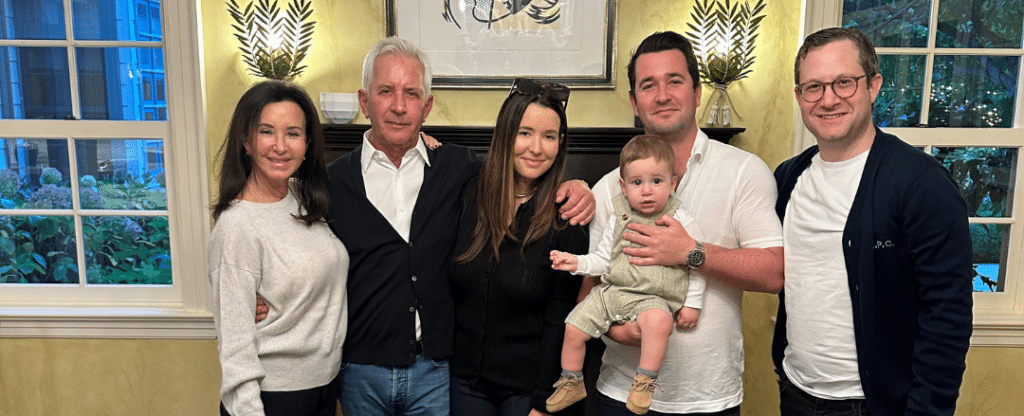In 2021, Susan Levine had much to celebrate.
The Los Angeles-based luxury recruiting firm she founded in 1981 had expanded to five divisions and eight offices around the country. It had a stellar reputation, consistently ranking as one of the top recruiting firms in the United States, and Susan had been named one of Fortune’s Top 200 Female Business Founders in America.
Her private life was also rewarding. She had raised three beautiful children with her husband and was “off the charts” healthy.
So when a routine mammogram led to a diagnosis of Stage 2 breast cancer, it was “surreal,” she said. No one in her family had breast cancer, although her mother was diagnosed with Stage 4 lung cancer several years earlier.
“The radiologist came in and said, ‘I found something,’” she remembered. “They immediately did the biopsy. Everything seemed to move very quickly.”
Susan felt she needed to take matters into her own hands to expedite the process of having her cancer removed. She quickly arranged for an MRI and found a surgeon at UCLA. Surgery was scheduled about a week later and by the following Monday, she was back in the office. She felt incredibly fortunate that the process moved quickly.
Three weeks later she began radiation therapy.
“I remember the first day of treatment, I got emotional because it suddenly became real,” she said.
Susan’s radiation oncologist at UCLA was Dr. Joanne Weidhaas. They talked about Susan’s cancer and her mother’s lung cancer diagnosis. Dr. Weidhaas asked Susan if she had ever been tested for the KRAS oncogene.
“Joanne has become my trusted advisor and sounding board, so when she suggested getting tested, I never thought twice about doing it,” she said.
Susan tested positive for the KRAS-variant, which empowered her to make a very major medical decision. Because having the KRAS-variant is a genetic marker for increased risk of ovarian cancer, Susan made the decision to have her ovaries removed.
“Having the test has been so important,” she said. “It’s not only about prevention; it’s about enlightenment.”

She noted that her gynecologist of 40 years retired a few years before her diagnosis, and she did not find a new one at that time, because multiple doctors told her that at her state of postmenopause, she no longer needed one as long as her PAP smears were clear.
“Nothing could be further from the truth,” she said.
The impact of Susan’s positive result extends to the other women in her family who decided to also get tested. Her sister and one of her daughters are also positive for the KRAS-variant, and it is altering how they are approaching their health.
“My daughter immediately went for a mammogram – years earlier than she normally would have – because she tested positive,” Susan said. “It made her more aware of the importance of those screenings.”
Meanwhile, Susan continues to consider herself lucky that her cancer was caught early and that she had genetic testing.
“This was the hand I was dealt, there was nothing to do but accept it and say I was lucky because it was Stage 2 breast cancer,” Susan said. “It could have been a lot worse. It could have been a cancer that didn’t have such a high survival rate; it could have been Stage 4.”
And now, with the help of the testing to detect the KRAS-variant, she is not only giving herself a better chance of preventing a second cancer diagnosis, she is helping reduce the odds that her sister and daughter will have to face this disease.
“The biggest take from my experience that I’d want other women to know is to be diligent about getting your screening,” she said.


